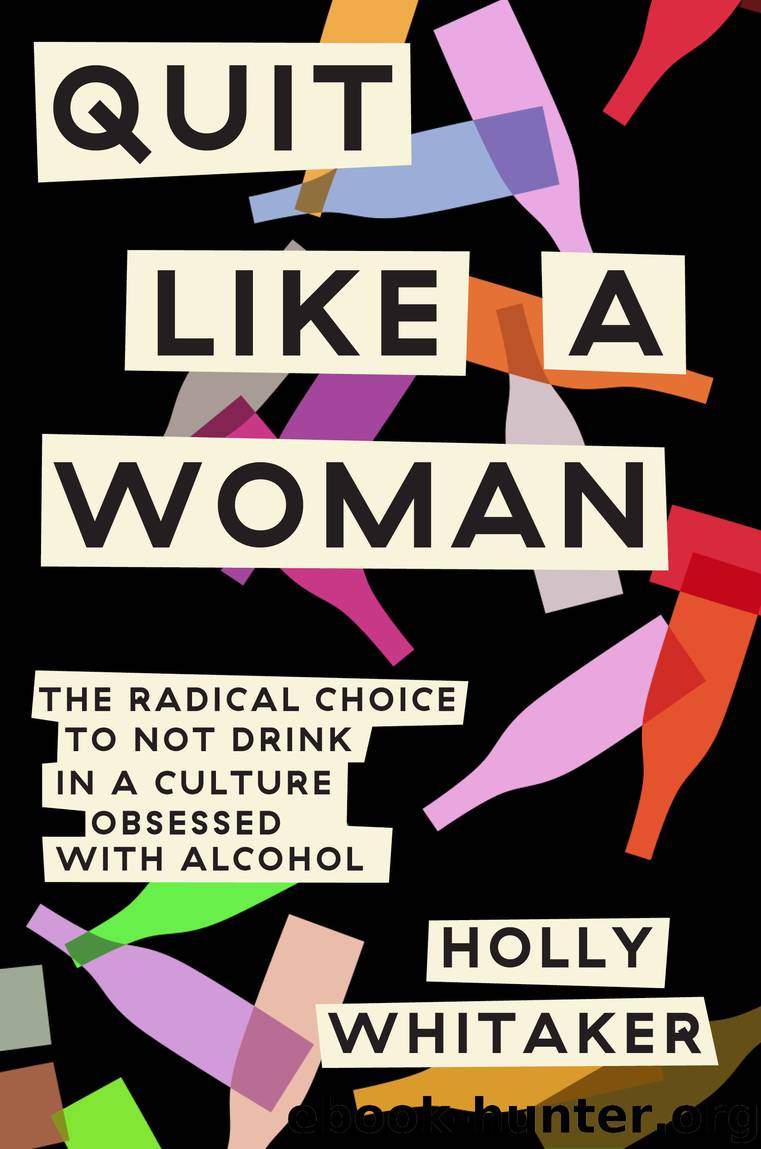Quit Like a Woman by Holly Whitaker

Author:Holly Whitaker
Language: eng
Format: epub
Publisher: Random House Publishing Group
Published: 2019-12-30T16:00:00+00:00
HABIT FORMATION
In The Power of Habit, author Charles Duhigg talks about the three components necessary to form a habit: a cue, or something that triggers us to perform a routine, so that we may receive a reward. For example: You smell cigarette smoke (the cue), you reach for a cigarette and light it up (the routine), and you get a nicotine buzz (the reward). Duhigg asserts that we don’t really break habits; rather we change out the routine from existing habit loops. In other words, when we are trying to extinguish a habit, the cue remains and the reward remains, we just change out the middle part. In the case of cigarette smoking, you still have the same cues (stress, the smell of smoke, seeing people inhale). The difference is what you do with those cues. Maybe you go for a run, or make a pot of coffee, or do some breathing exercises instead. Whatever it is, the new, healthier routine needs to provide a similar reward so you are motivated to replicate it in the future. If it doesn’t get you off, it won’t work.
Creating new habits rests on this same exact framework; a cue, a routine, and a reward are all needed in order to make the whole thing work. But repetition is also a requirement—we have to do something enough times for it to become a habit (something we do without thinking, automatically). A good example of this principle in action was in early sobriety, when I got into the habit of brushing my teeth at night. I know it doesn’t sound like the most heroic achievement—I mean you just brush your teeth—but I’d spent years drinking and smoking weed in order to fall asleep. My night routine wasn’t me in a chemise at my vanity with some Pond’s cream; my routine was “do whatever it takes to pass out.” Brushing my teeth was something I sometimes did at night but usually didn’t. One of my first goals in early sobriety was to change this.
At first I encountered walls and walls of resistance to this simple practice; I’d either forget or I’d be comfy in bed and about to fall asleep and not want to disturb that sweet moment, or I’d just not want to. But I was desperate to become someone who was responsible enough to have good oral hygiene, so I persisted. At first I had to use lots of brain resources (willpower) to get into the habit, but eventually it paid off. Now I don’t even have to think about brushing my teeth at night: I shut everything down, wash my face, floss (yep, nailed that too), brush for two minutes, put my earplugs in, turn the light off, and fall asleep. None of it requires any PFC resources. I do it reflexively, and if I don’t, that’s when something feels off or amiss. My reward? The feeling of clean teeth (which I’m “addicted” to having now).
This exact same process can get us into a new workout routine, or a new evening ritual that doesn’t include wine.
Download
This site does not store any files on its server. We only index and link to content provided by other sites. Please contact the content providers to delete copyright contents if any and email us, we'll remove relevant links or contents immediately.
| Adult Children of Alcoholics | Alcoholism |
| Drug Dependency | Gambling |
| Hoarding | Obsessive Compulsive Disorder (OCD) |
| Sexual | Smoking |
| Substance Abuse | Twelve-Step Programs |
The Hacking of the American Mind by Robert H. Lustig(4383)
Right Here, Right Now by Georgia Beers(4212)
Fingerprints of the Gods by Graham Hancock(4004)
Goodbye Paradise(3810)
Bad Pharma by Ben Goldacre(3428)
Happiness by Matthieu Ricard(3049)
The Social Psychology of Inequality by Unknown(3031)
More Language of Letting Go: 366 New Daily Meditations by Melody Beattie(3030)
The Plant Paradox by Dr. Steven R. Gundry M.D(2620)
Drugs Unlimited by Mike Power(2594)
Confessions of a Shopaholic by Sophie Kinsella(2372)
Borders by unknow(2315)
Make Love Not Porn by Cindy Gallop(2105)
Dry by Augusten Burroughs(2101)
Stop Being Mean to Yourself: A Story About Finding the True Meaning of Self-Love by Melody Beattie(2004)
Getting Off by Erica Garza(1932)
Belonging by Unknown(1857)
Yoga and the Twelve-Step Path by Kyczy Hawk(1835)
Unmasking Male Depression by Archibald D. Hart(1808)
